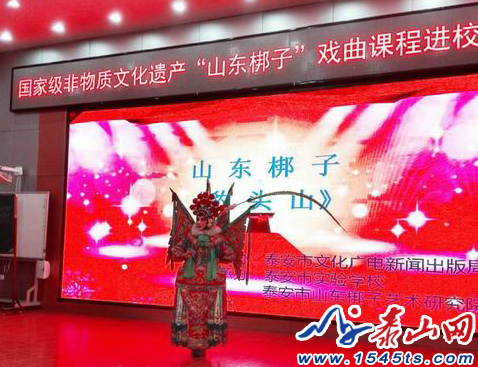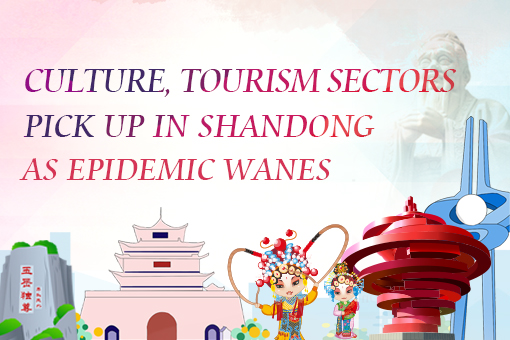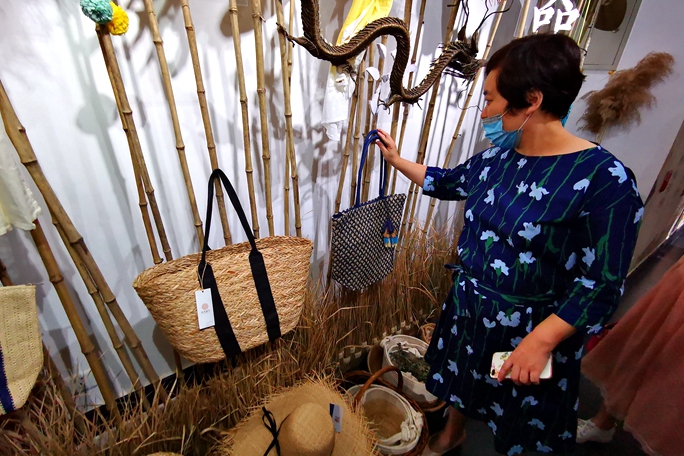Traditional opera reaches out to younger generation
There are wonderful implications for the future of time-honored Shandong Bangzi (Wooden Clapper Opera), a Tai'an-rooted folk art as well as a national intangible cultural heritage, arising from its being used in local primary and secondary schools. Our youth will be better able to understand and preserve it.
The launch ceremony of "bring Shandong Bangzi opera into class" commenced on March 15 at the Tai'an Experimental Elementary School, with classic excerpts performed for more than 300 school children.
 |
|
Classic excerpts of Shandong Bangzi are performed at the Tai'an Experimental Elementary School on March 15. [Photo/1545ts.com] |
The excellent performances by artists from the Tai'an Shandong Bangzi Art Institute were warmly welcomed by the students.
Organized by the Tai'an Municipal Bureau of Culture, Radio, TV, Film, Press and Publication and the Tai'an Shandong Bangzi Art Institute, the event is designed to help the younger generation learn more about traditional opera and China's outstanding traditional culture, as well as improve their artistic accomplishments.
"The opera is more than a traditional folk performance. It describes different customs and dress styles of people in different times, reflecting aesthetic connotation and conveying historical knowledge and moral education," said Liu Ke, a music teacher at the Tai'an Experimental Elementary School.
Third-grader Niu Muzi expressed his appreciation after the performance, "The opera is very remarkable and nothing like you picture it when you watch it on TV. I really hope to learn more about the opera in the future."
Experts from the Tai'an Shandong Bangzi Art Institute also gave some basic knowledge of Shandong Bangzi to the kids.
"Traditional opera is the essence of Chinese traditional culture. It will be better inherited by the younger generation through providing opera classes at school," said Song Fubin, director of the Tai'an Shandong Bangzi Art Institute.
Shandong Bangzi is popular in the southwestern cities and rural areas of Shandong province, and was listed as a national intangible cultural heritage in May 2006. It covers various topics, including dominating figures in various Chinese dynasties, heroic behavior, famous wars, folk legends, love affairs and family ethics.

 Shandong Culture and Tourism Consumption Season
Shandong Culture and Tourism Consumption Season Culture, tourism sectors pick up in Shandong as epidemic wanes
Culture, tourism sectors pick up in Shandong as epidemic wanes

